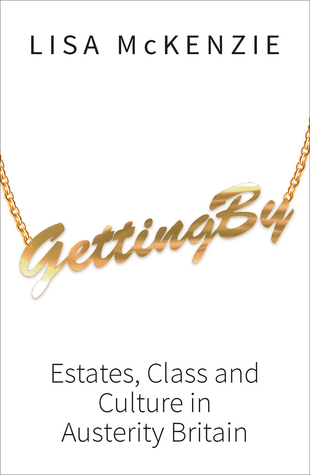3.5 Stars!
“If you want to know anything about a neighbourhood, ask the women, especially the mothers, as they spend much of their time in and around the estate, taking children to school; they are also heavily invested in the neighbourhood, usually through family and kinship networks-what matters to the community matters to the women who raise their children in it.”
This study is centered on the St Ann’s estate in Nottingham, but of course most of the social problems can be related and applied on a far wider scale right across the United Kingdom. This echoes much of the work done by Orwell in the 30s and what the Mass-Observation studies were doing for many years too.
McKenzie brings a deeply refreshing air of authenticity to her work, which makes a pleasing change from the usual middle/upper class academics who parachute in on poverty safaris and then scuttle back to their professional sinecures and bourgeois comforts.
In the same way that travel books have a better insight and deeper quality to them when the author can speak the native language, McKenzie has a crucial advantage by the fact that she is working class and also lives in the place she studies. Because she has skin in the game, and this is her very community, she gains trust and is recognised by them as being one of them, which allows her to get deeper into the heart of the community and paves the way for added nuance and depth.
McKenzie doesn’t shy away from confronting the complexities and the ambiguities she encounters in the estate, we get to hear about domestic violence, racist abuse and other flaws which are not brushed over, she is aware that this can leave the area ripe for ridicule and tabloid fodder, but at least she is not afraid to show the many sides, and this is why this succeeds in producing a well-rounded account.
In 2011 after the London and English riots, David Cameron had “pledged a war on gang affiliation within inner-city communities.” Which made me laugh as I wondered whether that meant he would be focusing more on the political or financial class?...
The English riots work as a strong example of how the political and judicial system works, and who it works for. We only have to look at the many draconian punishments hammered on people who either played small/inconsequential roles, or even those who played no part at all but were swept up in it by police, due to the colour of their skin or their background, and compare that to how the wealthy are treated when they commit far more serious crimes with real life consequences for many others. Whether that be the law breaking Tory government during lockdown or the thieving banking industry, not only do they get away with it, but the poor also get to suffer the consequences of their actions too.
This is all fuelled and promoted by some of the most hateful and poisonous people “writing” in some of the most hateful and popular papers in the land which feed the nation a steady, toxic diet of stigma, stereotypes and lies whilst at the same time keeping the right wing elite in power and maintaining the status quo, diverting attention away from the real issues and problems, in favour of demonised the working classes as they fall further and further behind.
What is apparent is the sheer apathy and profound ignorance of successive British governments to the root causes and their pervasive impact and legacies on needy communities throughout the length and breadth of the British Isles. At the risk of stating the obvious, but what do we think is going to happen when you repeatedly vote in a mob of people who come from a world that is so cocooned from the harsh day to day realities for the majority of people in the UK?...
Again at the risk of stating the obvious, we can see beyond any reasonable doubt that the political and corporate elite have no interest whatsoever in the plight of the people in St Ann’s or other estates like them beyond what opportunities something like it might hold for them to exploit or manipulate in the future.
There is a nice afterword by Owen Jones too, who has also written well on similar subjects in the past, and this book goes nicely alongside similar work published by the likes of Selina Todd, Lynsey Hanley and Kate Fox.

